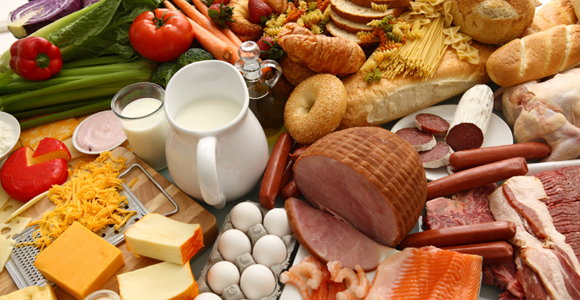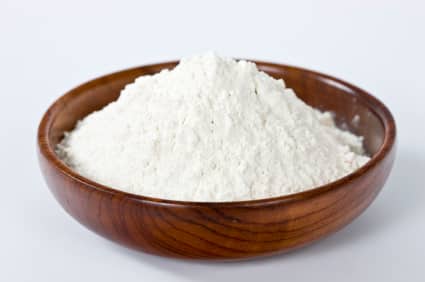What Is L-Carnitine?
 L-carnitine is an amino acid that is organically produced in the body. L-carnitine aids the body turn fat into energy. The body can transform L-carnitine into other amino acids called acetyl-L-carnitine and propionyl-L-carnitine.
But, no one knows whether the advantages of carnitines are replaceable. Until more is known, don’t substitute one form of carnitine for an another.
L-carnitine supplements are consumed by mouth to enhance L-carnitine levels in each individual whose natural level of L-carnitine is too less because they have a genetic diseases, are taking particular drugs (such as valproic acid for seizures or few antibiotics for tuberculosis), or because they are undergoing a medical procedure (hemodialysis for kidney disease) that utilizes up the body’s L-carnitine.
It is also utilized as a substitution supplement in strict vegetarians, dieters, and low-weight or premature infants.
L-carnitine is an amino acid that is organically produced in the body. L-carnitine aids the body turn fat into energy. The body can transform L-carnitine into other amino acids called acetyl-L-carnitine and propionyl-L-carnitine.
But, no one knows whether the advantages of carnitines are replaceable. Until more is known, don’t substitute one form of carnitine for an another.
L-carnitine supplements are consumed by mouth to enhance L-carnitine levels in each individual whose natural level of L-carnitine is too less because they have a genetic diseases, are taking particular drugs (such as valproic acid for seizures or few antibiotics for tuberculosis), or because they are undergoing a medical procedure (hemodialysis for kidney disease) that utilizes up the body’s L-carnitine.
It is also utilized as a substitution supplement in strict vegetarians, dieters, and low-weight or premature infants.
Types Of L-carnitine & Their Uses
There are two main forms of L-carnitine that are supplemented in the diet, which are L-carnitine tartrate and acetyl L-carnitine.1. L-carnitine Tartrate
L-carnitine Tartrate is generated in the body from the amino acids lysine and methionine. It is primarily synthesized in the liver and kidneys and must be taken for use to other tissues in the body. It is found in its elevated levels in tissues that use fatty acids as the main fuel source such as the skeletal and cardiac muscles. L-carnitine L-tartrate increases fatty acid oxidation and decreases purine catabolism and a free radical emergence, which may gradually prevent exercise fatigue, muscle weakness, chemotherapy-induced peripheral neuropathy, and hyperlipoproteinemia. L-carnitine, the biologically active form of carnitine, is a carrier molecule that transfers activated long-chain fatty acids (LCFAs)from the cytosol to mitochondria where fatty acids are oxidized, resulting in ATP production, L-tartrate, a salt of tartaric acid, is a potent antioxidant2. Acetyl L-carnitine (ALCAR)
Acetyl L-carnitine is generated in the body from the amino acids lysine and methionine. The main difference between ALCAR and L-carnitine tartrate is that ALCAR has an acetyl group joined to the carnitine molecule which reforms its functionality and accesses it to pass through the blood-brain barrier. This means it is often found in the nervous system, especially the brain and is the favored choice of supplement for brain support. ALCAR is ideal for athletes and active people, i.e. people who workout on a regular basis or anyone looking l carnitine when to take, this is an easy-to-consume source of L-carnitine that can be taken throughout the day.3. Propionyl-L-Carnitine
Propionyl-L-carnitine is an amino acid that is genuinely produced in the body. Amino acids are the building blocks of proteins. L-carnitine and acetyl-L-carnitine are also amino acids, and they are chemically interconnected to propionyl-L-carnitine. In fact, the body can transform L-carnitine to propionyl-L-carnitine and acetyl-L-carnitine. But, there is always a doubt whether the carnitine benefits are interchangeable. Until anything is in place of perfection, don’t substitute one form of carnitine for another.What Are The Food Sources Of L-Carnitine?
 Carnitine is a chiral molecule, meaning that it exists as two isomers (L-carnitine and also D-carnitine), each of which is a reflector image of the other. The form being in the body is L-carnitine, which is also the form present in food.
Food with l carnitine are divided into both vegetarian food sources of L-carnitine and non-vegetarian food sources L-carnitine.
Adults consuming diverse diets that consist animal products attain about 60–180 milligrams of carnitine per day.
Below is the table where you can able to know the highest to lowest values of L-carnitine vegetarian and non – vegetarian food sources.
Carnitine is a chiral molecule, meaning that it exists as two isomers (L-carnitine and also D-carnitine), each of which is a reflector image of the other. The form being in the body is L-carnitine, which is also the form present in food.
Food with l carnitine are divided into both vegetarian food sources of L-carnitine and non-vegetarian food sources L-carnitine.
Adults consuming diverse diets that consist animal products attain about 60–180 milligrams of carnitine per day.
Below is the table where you can able to know the highest to lowest values of L-carnitine vegetarian and non – vegetarian food sources.
 Apart from vegetarian and nonvegetarian sources, you should also know about vegans diet which is very rarely explained.
Apart from vegetarian and nonvegetarian sources, you should also know about vegans diet which is very rarely explained.
Do Vegans Need L- Carnitine?
Veganism is one of the forms of vegetarian diet that excludes meat, eggs, but also removes dairy products and all few animal-derived ingredients from their regular routine. Many vegans also do not consume foods that are prepared by using animal products, such as refined white sugar and some wines. Vegan refers to either a person who follows this way of eating or to the diet itself. That is, the word vegan can be an adjective utilized to describe a food item, as in, “This curry is vegan”, or, it can be utilized as a noun, as in, “Vegans like cookies, too.” Vegans get generally less (about 10–12 milligrams) since their diets lack these L-carnitine-rich animal-derived foods. Approximately 54% to 86% of dietary L-carnitine is absorbed in the small intestine and then enters the bloodstream. Even L-carnitine lack diets have little effect on the body’s total carnitine content as the kidneys conserve carnitine very efficiently.Which Foods Are Included In Vegan Diet?
 A vegan diet generally includes all grains, beans, legumes, l-carnitine rich fruits and vegetables like avocado, asparagus, bread, cooked rice, orange juice and the nearly infinite number of foods made by combining them.
While it is not as abundant ( while preserving avocados are 2 mg and rice is about 0.0449 mg), L-carnitine can still be found in vegan foods.
Even so, it is still good to take a vitamin that consists of some L-carnitine in it just to help.
Above you can see the clear table chart on vegetarian, non-vegetarian and also a vegan diet that are rich in L-carnitine.
As we come to an end, here’s what I have to say. Following an L-carnitine for a healthy life and a regular workout is enough.
But if you do wish to obtain good health talk to your doctor or dietitian before taking L-carnitine supplements.
Have you ever considered L-carnitine for your overall health? How did it help you? Please feel free to share your experience with us by commenting below.
https://www.livestrong.com/article/22647-foods-containing-l-carnitine/
https://healthyliving.azcentral.com/what-foods-contain-l-carnitine-12154427.html
A vegan diet generally includes all grains, beans, legumes, l-carnitine rich fruits and vegetables like avocado, asparagus, bread, cooked rice, orange juice and the nearly infinite number of foods made by combining them.
While it is not as abundant ( while preserving avocados are 2 mg and rice is about 0.0449 mg), L-carnitine can still be found in vegan foods.
Even so, it is still good to take a vitamin that consists of some L-carnitine in it just to help.
Above you can see the clear table chart on vegetarian, non-vegetarian and also a vegan diet that are rich in L-carnitine.
As we come to an end, here’s what I have to say. Following an L-carnitine for a healthy life and a regular workout is enough.
But if you do wish to obtain good health talk to your doctor or dietitian before taking L-carnitine supplements.
Have you ever considered L-carnitine for your overall health? How did it help you? Please feel free to share your experience with us by commenting below.
https://www.livestrong.com/article/22647-foods-containing-l-carnitine/
https://healthyliving.azcentral.com/what-foods-contain-l-carnitine-12154427.html

